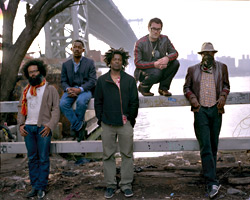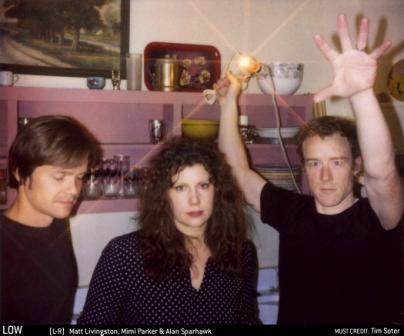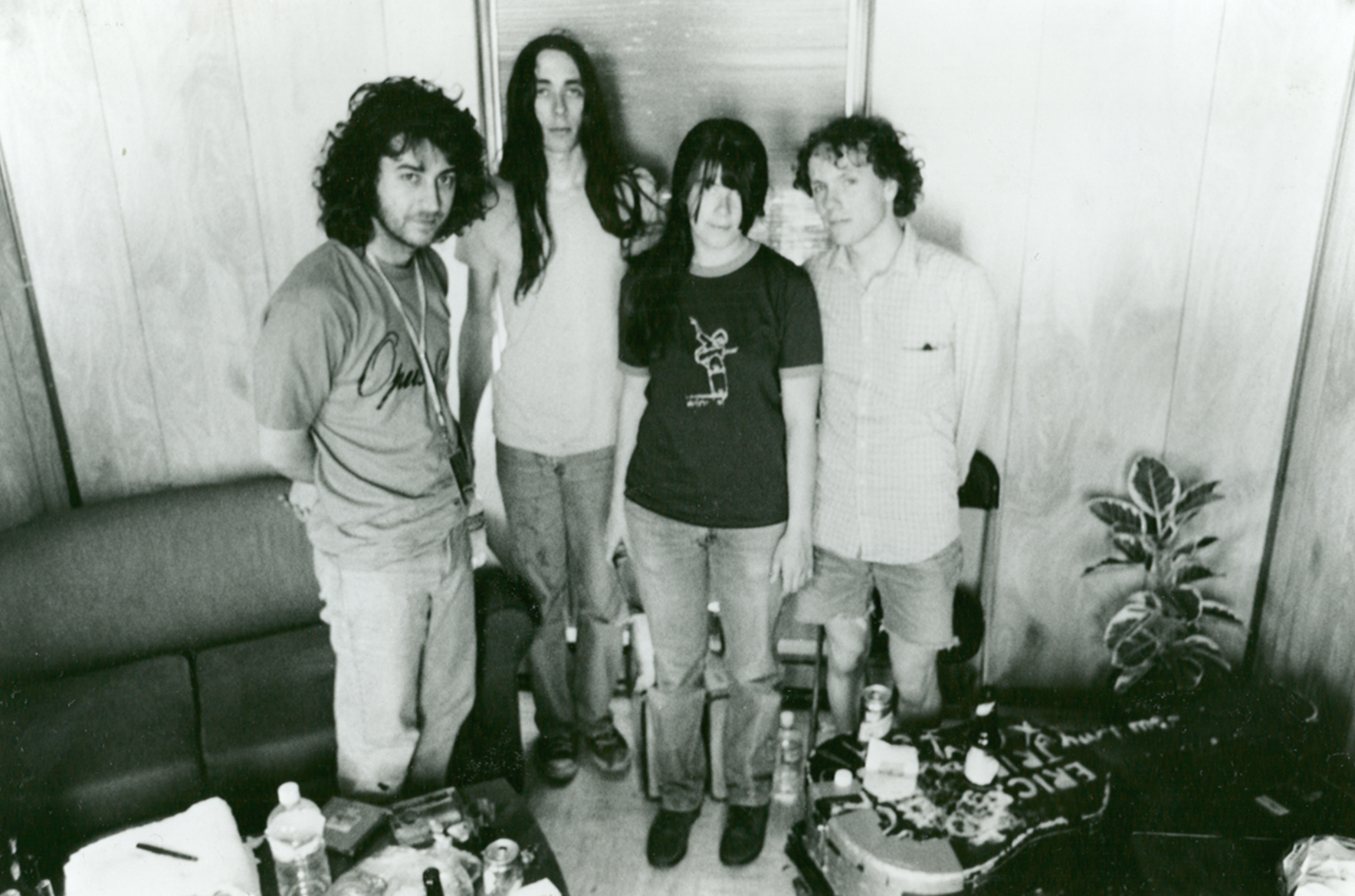TV on the Radio are having a moment of beauty and light. Their major-label debut, Return to Cookie Mountain, officially out for less than a month, is perhaps the only album currently agreed upon as mind- blowing by Pitchfork and Rolling Stone, and the joy of audience participation during the bands tour (theyve been around the world since April) is remarkably different than anything Ive ever seen, says multi-instrumentalist and producer Dave Sitek. But it wasnt so many years ago that he and vocalist Tunde Adebimpe were jobless and selling paintings on the street in Brooklyn.
As much as the recent paradigm shift in the way music is discovered and marketed (spurred by the hyperinformed connectivity of the MyPod generation), the early financial and emotional support they received from a friend, and similar support since, has informed their success. Now, Sitek is a self-described junkie for the belief system of “paying it forward,” and is on a quest to proliferate that idea as much as to pack concert halls.
“If you’re lucky enough to harness the resources to create something stupendous in your life, and if you’re to get anything out of that, rather than give it back to the person who gave it to you, you give it to the next person who could really use that, and with the intention of them not returning it to you,” Sitek explains.
“I think adopting that kind of mentality is what made bands like us, Celebration, the Yeah Yeah Yeah’s, Liars . . . everyone gives everything of themselves,” he says, counting engineers and studio workers among the “30 to 40 people who believe in what we do” as members of TV on the Radio. The fruits of these reciprocal relationships show themselves on Return‘s production and in Celebration’s Katrina Ford’s ecstatic howl, and they are felt in the heady vibrations of TVOTR’s live shows.
Return is a strange album—often uplifting, sometimes spooky, a sealed-with-a-sloppy-kiss lust letter filled with depth and promising mischief. While Sitek admits that TVOTR are their label Interscope’s guinea pig in some respects, he’s pleased that the new model of exposure, rather than commerce, is what generates interest so often among friends and communities. “A band like us getting known and supported so widely is promising because it means you don’t have to sing specifically about girl problems, and [you’ll] still make a record that people will hear,” says Sitek.
“On MySpace, there are bands saying equally strange and beautiful things. People want that kind of music, they want to be communicated with—they don’t want to feel alone anymore. I think that level of honesty is willed in every one of us right now.”
There’s honesty and a near-religious fervor in TVOTR’s delivery. Sitek is concerned with “sick hearts” and uncertain futures, war, survival, and altered perceptions. “Finding godliness about what’s actually here, what we’re actually perceiving,” he says. “Recognizing something beautiful and possible in your lifetime and focusing on that and encouraging that.” Again, paying it forward is a part of that, and what Sitek feels is the most effective way to enact societal change. “Just recognize we are in this together, and be sure that people know you’re present,” he says.
Written collaboratively by Sitek, Adebimpe, and guitarist/vocalist Kyp Malone, Return‘s songs are idealistic and literate (“Your rusty heart will be fine, in its telltale time”) without feeling pretentious, political and psychedelic without feeling like a hippie campfire (even during the album’s halfway mark of dueling, Animal Collective–like jams). The guitars are just too scorching/soaring—in a Nick Zinner, Thurston Moore style—and the sonics too electronic to characterize a band not firmly in the present.
From the sing-along urgency of first single “Wolf Like Me” to the shoegaze drones of “I Was a Lover,” passion and thoughtfulness rarely sound this hot and bothered together. Listen carefully and you’ll almost hear a mystic’s breath between the words in Return‘s songs. Sitek admits that he likes Rumi’s poetry, but his favorite quote is e.e. cummings’ “The world is mud- luscious and puddle-wonderful.”
“It showed me that language is so arbitrary, and it’s totally flexible,” says Sitek. Cummings also wrote, “I imagine that yes is the only living thing”—a worldview evident in TVOTR’s creative approach. Yes to friends, yes to speaking up, yes to being here now. In “Playhouses,” Adebimpe sings, “Beneath the cigarettes and sugar shit of alcohol breath/I can taste the ocean on your tongue.” That striving to move through static to reach a beautiful essence is—ironically—best illustrated through the band’s layers of noise. They just so happen to also be beautiful.








